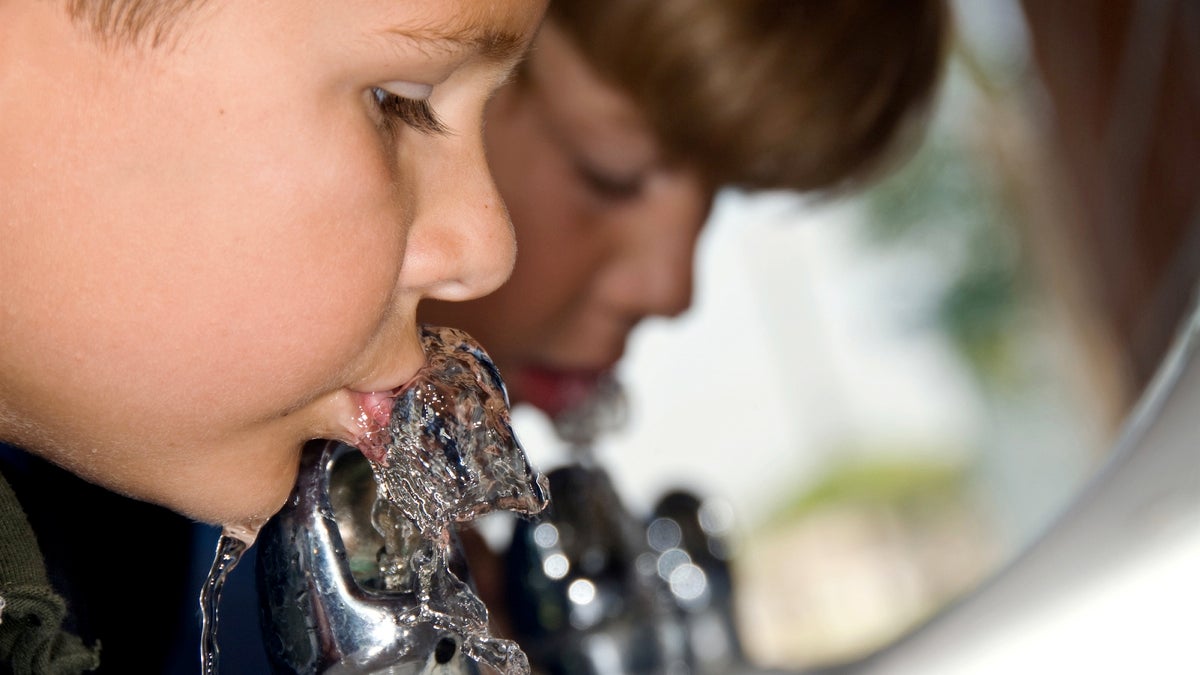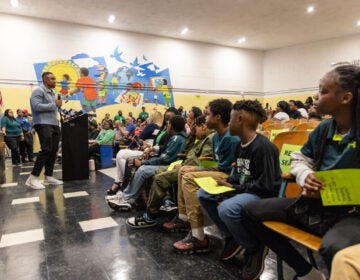Philly to test for lead in 40 city schools

The Philadelphia Water Department has proposed an 11 percent rate hike. (Kelpfish/Bigstock)
The School District of Philadelphia is reviving a program that will test for elevated lead levels in the drinking water at 40 city schools.
The project will take four months to complete and focus on schools at risk for dangerous concentrations of lead. Between 2000 and 2010 the district tested all of its drinking water outlets through the Safe Drinking Water Program, replacing or remediating those that tested positive for elevated lead.
“This retesting project will allow us to add another level of oversight and assurance to our water quality program,” said Fran Burns, the district’s Chief Operating Officer, in a statement. “It is important that we reassure our students and families that the quality of our drinking water is safe and in compliance with federal and local regulations.”
The retesting program will cost about $250,000, according to Francine Locke, environmental director for the School District of Philadelphia
The old testing program came about after samples showed high lead levels at select Philadelphia schools. The district’s current testing push follows a swell of chatter about water safety and access.
Nationally, the conversation has focused on Flint, Michigan, where a cost-saving move exposed thousands to contaminated water. In Philadelphia, advocates and politicians have pushed the city to be more vigilant about lead testing and to ensure that students have regular access to water fountains in public schools.
“With the new heightened level of concern from Flint, Michigan, our stakeholders — parents, students — have been really wanting to see more testing,” said Locke.
Locke said there were no indications that Philadelphia schools required extra testing, but rather that the program was a response to community calls for increased oversight.
In early June, a trio of councilwomen introduced three bills related to lead safety, including one from Councilwoman-At-Large Helen Gym that would require annual lead testing at all Philadelphia public schools. Gym also introduced a measure that would mandate schools have one working water fountain for every 100 students. The latter measure passed council in June.
Gym praised the district’s new retesting program as an “excellent step forward.”
“It’s long overdue,” said Gym. “I think it’s a great move by the school district to ensure that our water safety supply in our schools is both safe as well as appealing.”
The lead testing is part of a broader push by the school district to encourage water drinking. This year the district will install three bottle-filling taps — also known as hydration stations — at each school.
“We want our children to drink water because it’s good for them,” said Locke.
The 40 schools selected for the retesting project are largely located in neighborhoods where children have higher-than-normal lead levels in their blood or where the school itself was built before 1991. The sample is also designed to include schools from across the city.
Four schools will be tested each week for 10 weeks. An independent lab will analyze the results to make sure potable water complies with U.S. Environmental Protection Agency and Philadelphia Department of Public Health guidelines.
The school district formed a Safe Drinking Water Technical Advisory Committee in May to jump start the retesting program. Experts from the EPA, Philadelphia Department of Public Health, Philadelphia Water Department, and city teacher’s union helped design the new district testing regimen.
From 2000 to 2010, the district tested 30,000 water samples at 293 schools and closed all drinking outlets that did not meet federal or city safety standards.
Following the revelations in Flint, New Jersey ordered lead tests for all of its public schools. The Lower Merion School District outside of Philadelphia also recently tested its schools for lead.
The schools participating in Philadelphia’s new testing push are:
Ethel Allen Elementary School
Bache Elementary School
Bethune Elementary School
Blankenburg Elementary School
Henry A. Brown Elementary School
Cramp Elementary School
William Cullen Bryant Elementary School
Cassidy Elementary School
Decatur Elementary School
Disston Elementary School
Dobson Elementary School
Dunbar Elementary School
Elwood Elementary School
Feltonville Elementary School
Benjamin Franklin High School
Gompers Elementary School
Holme Elementary School
Hopkinson Elementary School
Henry H. Houston Elementary School
Huey Elementary School
W.D. Kelley Elementary School
J.B. Kelly Elementary School
Locke Elementary School
Ludlow Elementary School
Mayfair Elementary School
Meade Elementary School
McDaniel Elementary School
Nebinger Elementary School
Overbrook Elementary School
Overbrook High School
Patterson Elementary School
Pierce Elementary School
Pollock Elementary School
Richmond Elementary School
South Parkway Center City HS
Spring Garden Elementary School
Steele Elementary School
Potter Thomas Elementary School
Webster Elementary School
Ziegler Elementary School
This story has been updated to reflect the fact that Philadelphia passed a new law requiring certain numbers of drinking fountains in city schools.
WHYY is your source for fact-based, in-depth journalism and information. As a nonprofit organization, we rely on financial support from readers like you. Please give today.





